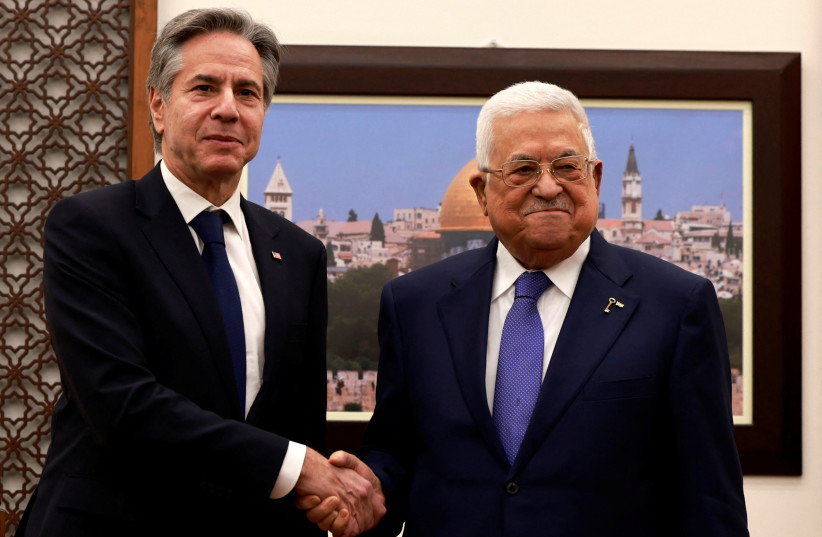A poll conducted in the second week of January by researchers at Tel Aviv University found that Jewish Israelis believe the IDF is using an appropriate amount (51%) or not enough force (43%) in Gaza, while more than half (55%) of Arab Israelis say the IDF is using too much force and a majority (53%) believe the casualty numbers on the Palestinian side are unjustified.
As for the goals of the war, Jewish Israelis are split on whether the government’s aims are clear, while only about a fifth of Arab respondents believe they are. On the question of what the government ought to prioritize, destroying Hamas or returning the hostages, Jewish Israelis are almost evenly split, with very few undecided; a large majority of Arab Israelis (66%) say that returning the hostages should be the primary objective, with about a fifth unsure, and few (11%) prioritizing the destruction of Hamas.
To address the conflict at large, a large majority (66%) of Jewish Israelis oppose the creation of a Palestinian state, while the same share (66%) of Arab Israelis support it. Arab Israelis are more supportive of negotiating with the Palestinian Authority but are split on whether it is likely to bring about peace.
A notable difference across topics was that most Jewish Israelis were relatively confident in their opinions, whereas Arab Israelis were more likely to say they don’t know. About 10-30% of Arab respondents to any given question provided an agnostic answer, compared to a range of about 5-15% among Jews.

Israelis believe war is being waged appropriately, Arab Israelis do not
A vast majority of Jewish Israelis believe that, in light of the war’s aims and conditions, the number of casualties on the Palestinian side has been justified, and most believe the number of casualties on the Israeli side has been unjustified, with few saying (13%) saying they don’t know.
About half of Arab Israeli respondents, meanwhile, believe that the IDF is using too much force, hardly any believe it is using too little, and only a fifth believe it is using an appropriate amount, with an equal amount responding that they don’t know.
Most Arab Israelis believe the number of casualties on the Palestinian side has been unjustified, including a large minority who say it has been “completely unjustified,” while about a third say they don’t know. Most Arab Israelis believe the number of casualties on the Israeli side has been unjustified, and about a third say they don’t know.
Jewish Israelis are split on the question of whether the government’s objectives are clear, while only about a fifth of Arab voters believe the objectives are clear, and a third say the objectives are not clear at all. Among coalition voters, however, a clear majority now believe that the government does have clear war aims– a change from November, when only a very slim majority said so.
A vast majority of Jews support full Israeli security control of Gaza after the war, with almost all of the remaining respondents supporting “control of international and regional forces.” There is no consensus among Arabs on that question, but a plurality support “international and regional forces,” about a third don’t know, and about a fifth support PA control. Few (7%) support full Israeli control.
From a political-civilian standpoint, a roughly equal share of Arab Israelis say they support an international coalition, that they support PA control, or that they don’t know, while most Jewish Israelis support either international control (48%) or full Israeli control (38%), and few saying that they don’t know or that they support PA control.
Jewish Israelis are split on whether the end of the war in Gaza will bring about a long-term period of calm there, whereas only a fifth of Arab Israelis believe that it will.

Arab Israelis support a Palestinian state, Jewish Israelis do not
With respect to the conflict at large, Arab respondents broadly support a two-state solution, while Jewish respondents broadly do not. A vast majority of respondents in both groups believe that continuing the conflict harms Israel, although a small minority (13.6%) of Arabs say they don’t know.
Asked which solution to the conflict (two states, a binational state, annexation, or the status quo) has the best chance of being achieved in the foreseeable future, there is no consensus in either group: a plurality of Arab Israelis (33%) believe a two-state solution has the best chance of success, while a plurality of Jewish Israelis (43%) believe that a continuation of the status quo is most likely, although a vast majority of both Jewish and Arab Israelis are opposed to it.
Arab Israelis are significantly more optimistic, but still split, about the prospects for peace through negotiations with the Palestinian Authority, but a large majority (74%) support participating in them. Hardly any Jewish Israelis believe such negotiations would lead to peace, and a clear majority oppose participating in them.
A significant minority (37%) of Jewish Israelis support the annexation of the West Bank and the creation of one Israeli state with “limited rights for Palestinians,” while few (6%) support a binational state. Among Arabs, a significant minority (39%) support a binational state, but a two-state solution is supported by the majority.
